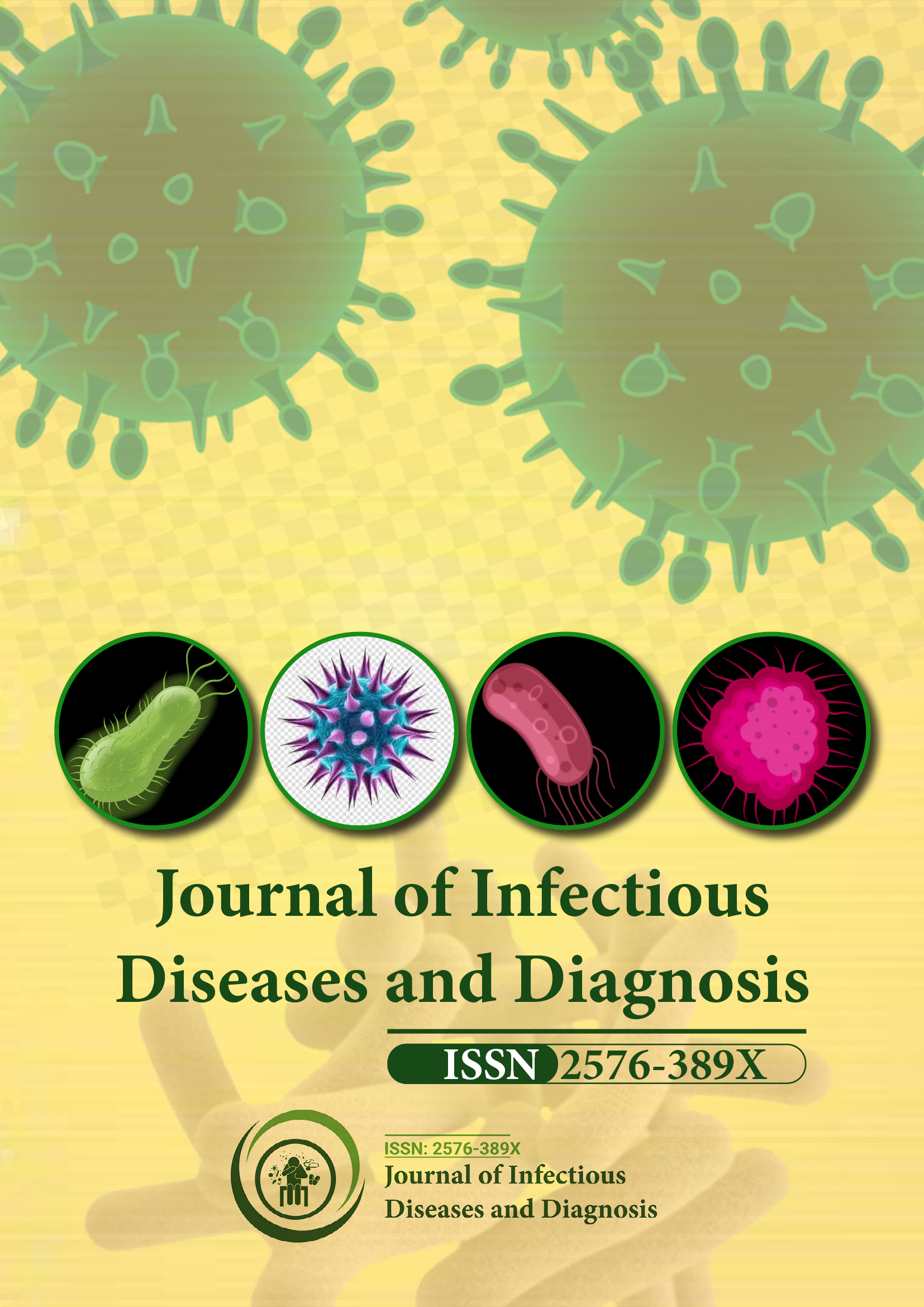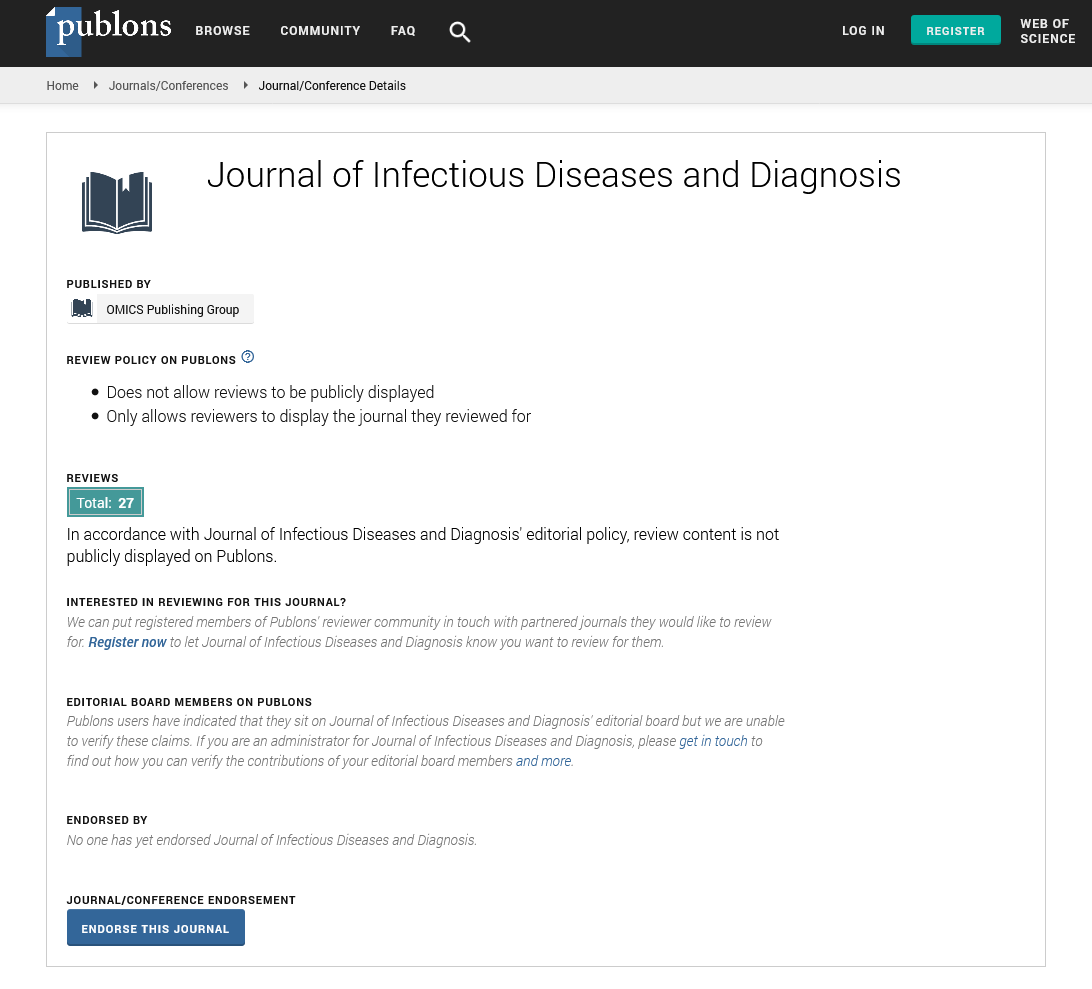Indexed In
- RefSeek
- Hamdard University
- EBSCO A-Z
- Publons
- Euro Pub
- Google Scholar
Useful Links
Share This Page
Journal Flyer

Open Access Journals
- Agri and Aquaculture
- Biochemistry
- Bioinformatics & Systems Biology
- Business & Management
- Chemistry
- Clinical Sciences
- Engineering
- Food & Nutrition
- General Science
- Genetics & Molecular Biology
- Immunology & Microbiology
- Medical Sciences
- Neuroscience & Psychology
- Nursing & Health Care
- Pharmaceutical Sciences
Commentary - (2023) Volume 8, Issue 2
Examining the Relationship between Infectious Disease Epidemics and Xenophobia
Michael Rothberg*Received: 01-Mar-2023, Manuscript No. JIDD-23-20784; Editor assigned: 03-Mar-2023, Pre QC No. JIDD-23-20784 (PQ); Reviewed: 17-Mar-2023, QC No. JIDD-23-20784; Revised: 24-Mar-2023, Manuscript No. JIDD-23-20784 (R); Published: 31-Mar-2023, DOI: 10.35248/2576-389X.23.08.203
About the Study
Infectious disease epidemics have been known to have a significant impact on society, ranging from health and economic outcomes to social and cultural ones. One of the lesser-discussed impacts is the rise in xenophobia and discrimination against individuals who are perceived to be from countries or regions where the outbreak originated. In this essay, we will explore the impact of infectious disease epidemics on xenophobia and how it affects individuals and society as a whole.
Xenophobia is the fear or hatred of strangers or foreigners. It can manifest itself in various forms, including discrimination, racism, and prejudice. There are many reasons why xenophobia exists, including fear of the unknown, lack of exposure to different cultures, and political ideologies. However, one of the most common reasons is a lack of understanding of the disease outbreak and its origins.
Infectious disease epidemics have been known to increase the levels of xenophobia and discrimination. The fear of the disease and its spread can lead to people associating the outbreak with certain regions or countries, and subsequently, the people from those regions become targets of discrimination and racism. This is particularly true in situations where the outbreak is severe and has a high mortality rate. The recent COVID-19 pandemic is an example of how a disease outbreak can lead to increased levels of xenophobia and discrimination.
Xenophobia can have a significant impact on the mental and physical well-being of individuals. Those who are targeted may experience feelings of fear, anxiety, and depression. They may also experience physical violence and harassment, leading to physical harm and trauma. In some cases, individuals may feel compelled to hide their identity and culture, leading to a loss of cultural identity and sense of belonging. Xenophobia can also affect the ability of individuals to access healthcare and other essential services.
Xenophobia has a broader impact on society as a whole. It can lead to social tension and division, and hinder social cohesion. This can have significant economic and political consequences, as well as social ones. In some cases, xenophobia can lead to conflicts between different groups, which can have long-term consequences.
Mitigating xenophobia during epidemics is essential for protecting individuals and maintaining social cohesion. There are several strategies that can be employed to achieve this. First, it is important to provide accurate and timely information about the disease outbreak, its origins, and its spread. This can help to dispel myths and misinformation that may fuel xenophobia. Second, governments and public health authorities can implement policies and programs that promote social cohesion and tolerance. This can include campaigns that raise awareness about the importance of diversity and inclusion. Finally, individuals and communities can take action to combat xenophobia by speaking out against discrimination and actively promoting tolerance and understanding.
Conclusion
In conclusion, infectious disease epidemics can have a significant impact on society, including an increase in xenophobia and discrimination. This can have negative consequences for individuals and society as a whole. Mitigating xenophobia during epidemics is essential for protecting individuals and maintaining social cohesion. Governments, public health authorities, and individuals must take action to promote tolerance and understanding, dispel myths and misinformation, and combat discrimination. By doing so, we can ensure that epidemics do not lead to social tension and division, but instead, promote social cohesion and unity.
Citation: Rothberg M (2023) Examining the Relationship between Infectious Disease Epidemics and Xenophobia. J Infect Dis Diagn. 8:203.
Copyright: © 2023 Rothberg M. This is an open-access article distributed under the terms of the Creative Commons Attribution License, which permits unrestricted use, distribution, and reproduction in any medium, provided the original author and source are credited.

